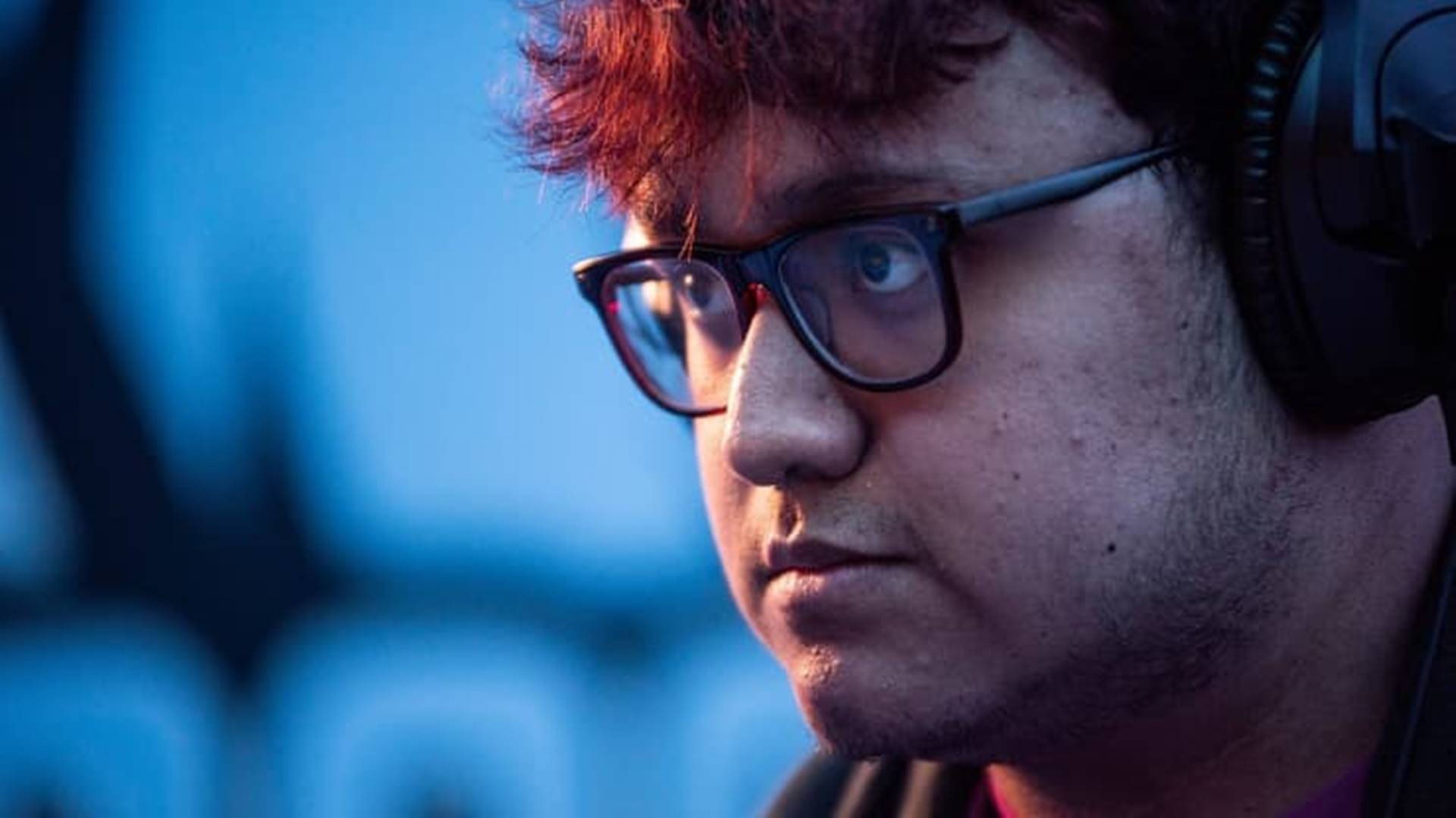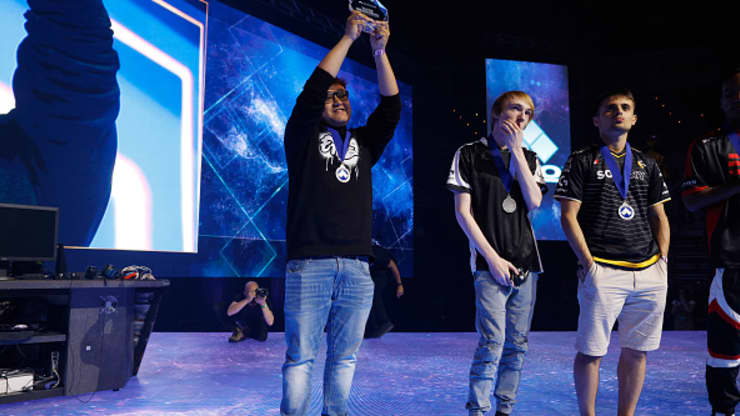If the growth of esports into a billion-dollar industry isn’t enough to convince you that video games are more than just a way for kids to while away hours on end in their rooms

Then consider the career trajectory of professional gamer Leonardo “MkLeo” Lopez Perez.
Today, the 20-year-old Mexico City native is one of the esports industry’s top gamers, widely considered to be the world’s best player of “Super Smash Bros. Ultimate,” a fighting game for the Nintendo Switch where players battle each other as famous gaming characters like Mario, Donkey Kong, and even Pac-Man. Two years ago, Perez won the largest “Super Smash Bros. Ultimate” tournament ever held, at the 2019 Evolution Championship Series in Las Vegas, taking home a prize of more than $21,000.
But, growing up, Perez’s family didn’t have a lot of money, he says. He lived with his parents and older brother in Naucalpan, a city on the outskirts of Mexico City that is considered to be one of the most dangerous areas in that country.
“We didn’t use to have anything,” he says. “I remember that we used to sell a lot of things just to have money to eat, like [once] a week.”
Playing video games literally changed his life.
Now, as one of the world’s top gamers, Perez tells CNBC Make It that he’s been able to save roughly $500,000 from the income he’s made during his gaming career, including six-figure career winnings from gaming tournaments, income from eSports team T1 Sports & Entertainment and via his roughly 140,000 followers apiece on YouTube and gaming streaming platform Twitch.
More recently, Perez has even found a new source of income as a star coach on the video game coaching platform Metafy.
Despite being only 20 years old, it’s taken Perez more than a decade to get to the point where amateur gamers will pay up to $100 an hour to try learning some of his skills.
MkLeo’s path to the pros
Perez has been playing video games for nearly as long as he can remember, and he started playing “Smash Bros.” at just 7. He won his first tournament a year later, at the age of 8, a “Smash Bros.” competition at a Japanese anime convention in Mexico City in 2009.
“My family has always been the kind of family that played games… They were like, ‘Oh yeah, do your homework and then you can start playing games,’” Perez says. “Of course, we didn’t have any idea that there was something [there] that could make your life better, that you could win money from it, that it was literally a job, like in eSports.”
Perez kept entering more tournaments into his teenage years, entering local competitions that didn’t require him to spend money on travel, and occasionally winning modest amounts of money here and there. Mostly, he was winning smaller competitions, where the prize would only be around $200, he says.
But, even that amount was enough to help out his family financially. He could go to his family and say, “Yo, where do you want to go eat? Or, what do you want to eat?′ Or, we could even go buy a lot of things [we needed],” Perez says.
“It was life-changing, to be honest.”
By 2015, when he was 14 years, Perez had become one of Mexico’s top gamers. But he catapulted himself onto the international gaming scene when he won the 2015 Smash Factor 4 tournament in Mexico by defeating a player named Ramin “Mr. R” Delshad, who at the time was among the best “Super Smash Bros.” players in the world.
Perez’s win happened to catch the attention of an American gamer named Jason “Mew2King” Zimmerman, who had also been in Mexico for the tournament. Zimmerman, who Perez calls “a legend,” has been a professional gamer since 2005 and is considered one of the best “Super Smash Bros.” players ever.
Perez says Zimmerman, now 32, told him he should start traveling to the U.S. to compete in bigger tournaments and he offered to serve as Perez’s coach.
Zimmerman tells CNBC Make It that when he met Perez, the then-teenaged gamer “was known in Mexico as a talented kid who was very good for his age, but nobody at this time realized exactly how good he would or could become.”
Perez has looked to Zimmerman as a mentor since they met in Mexico, with Zimmerman especially offering him guidance during the next several years, as Perez established himself as a top gamer in the U.S. and abroad.
“I decided to help him improve and reach his dream of becoming the #1 player in the world, which he told me was his dream and goal,” says Zimmerman, who regularly studied Perez’s matches in order to offer tips on how he could improve his skills.
From there, Perez started training for eight hours each day to “try to become the best,” and he “even forgot to eat some days, because I wanted to get better,” he says.
After struggling to win competitions when he first started traveling to the U.S. in 2016 — “I lost a lot of tournaments for, like, three months,” he says — Perez closed out that year by pulling off an upset against some of the world’s top “Super Smash Bros.” players. He won the 2GGT tournament in Las Vegas in December 2016, taking home the top prize of almost $5,500.
Over the next few years, Perez continued winning major tournaments and racking up prize money, culminating with the five-figure prize he took home from the 2019 Evolution Championship Series.
View this post on Instagram
Thanks to those earnings, Perez says he was able to buy an apartment for his family in Mexico City, where he and his family have lived while quarantining since the pandemic began. While he likes to think his family’s improved life has been a “team effort” (with his brother even serving as his “personal manager”), Perez says there’s no question his gaming success “is why our lives got better.”
Other than buying the apartment for his family, Perez says he’s avoided any large, splashy purchases with his career earnings. “I’ve been saving everything…” he says. “I’ve got it in my bank account, yeah, and I haven’t spent anything.”
‘Coaching saved me’
Perez’s gaming career was on a great trajectory, with six-figure career winnings from tournaments, getting signed by T1 in February 2020, and sometimes creating content and making videos where he played games and offered commentary. (Perez declined to share a full breakdown of his income, including his salary from T1, with CNBC Make It.)
Then the pandemic hit.
Perez saw his income from gaming tournaments dry up in 2020, as Covid-19 shut down many of the esports industry’s biggest and most lucrative in-person tournaments. Perez says his tournament winnings plummeted to just $10,000 overall in 2020, down from more than $109,000 in 2019, according to industry tracker EsportsEarnings.com.
While some tournaments moved online, Perez says he mostly avoided them, because the gameplay online for “Super Smash Bros. Ultimate” often lags when players are logging in on multiple different internet connections across the world. (Perez calls the online gameplay “pretty trash.”)
Perez didn’t panic about surviving — “I’ve been saving my money since I literally started traveling [to tournaments],” he says.
And “I don’t want to say I’ve lost a lot of money because, of course, I never competed for it,” Perez says of the past year.
“But, yeah, it was bad … I didn’t win a lot of things that I could have won.”
To make up for it, Perez looked for new revenue streams. Perez started turning out more videos and streaming content. But it also turns out that teaching people how to improve their video game skills can be a lucrative side-hustle for a gamer.
Starting in mid-February, Perez took on work as a video game coach on the online platform Metafy, where amateur gamers are willing to pay up to $100 an hour to play video games with him.
Launched in May 2020, Metafy has over 7,000 customers who pay to book one-on-one training sessions with professional gamers. The company touts its training sessions as offering players access to “champion-level coaches,” with taglines like the one that greets visitors to the Metafy website: “Get coached by the players kicking your ass.”

Perez coaches over Metafy’s virtual platform for roughly four hours per day, six days a week. A typical coaching session could find Perez simply answering a players’ questions for 30 minutes (a $40 charge), or even spending an hour playing against them online while offering advice or reviewing their past games to offer feedback (both options cost $100 per hour).
Perez says he typically brings in around $50,000 from tournament prize money in a given year, and he’s hoping to make about that much from coaching this year. Perez made more than $15,000 in income through the end of June, Metafy confirmed.
“It depends on how much I grind…” he says.
Coaching “saved me, pretty much,” Perez says, because the ability to make money and play against others (which counts as practice for his own career) allowed him to get back to his life as a professional gamer after a year in which he was missing out on the thrill of competition.
“I’m still young, I’m 20. So I was in my prime,” Perez says. “I was literally winning everything before the quarantine, and I was literally the best [“Super Smash Bros. Ultimate”] player … There was no player that could beat me consistently.”
Perez also plans to continue coaching on weekdays once the schedule for in-person tournaments (which typically happen on weekends, he says) becomes more active later this year.
“It’s something that I’ve also used to learn,” he says.
In order to become the best, Perez says, gamers need “someone that’s going to tell you, or coach you, in those little mistakes that you’re doing, like really tiny things that are going to help you identify what you’re doing wrong [and] you become better. But, grinding is really what makes you good.”
Napomena o autorskim pravima: Dozvoljeno preuzimanje sadržaja isključivo uz navođenje linka prema stranici našeg portala sa koje je sadržaj preuzet. Stavovi izraženi u ovom tekstu autorovi su i ne odražavaju nužno uredničku politiku The Balkantimes Press.
Copyright Notice: It is allowed to download the content only by providing a link to the page of our portal from which the content was downloaded. The views expressed in this text are those of the authors and do not necessarily reflect the editorial policies of The Balkantimes Press.
